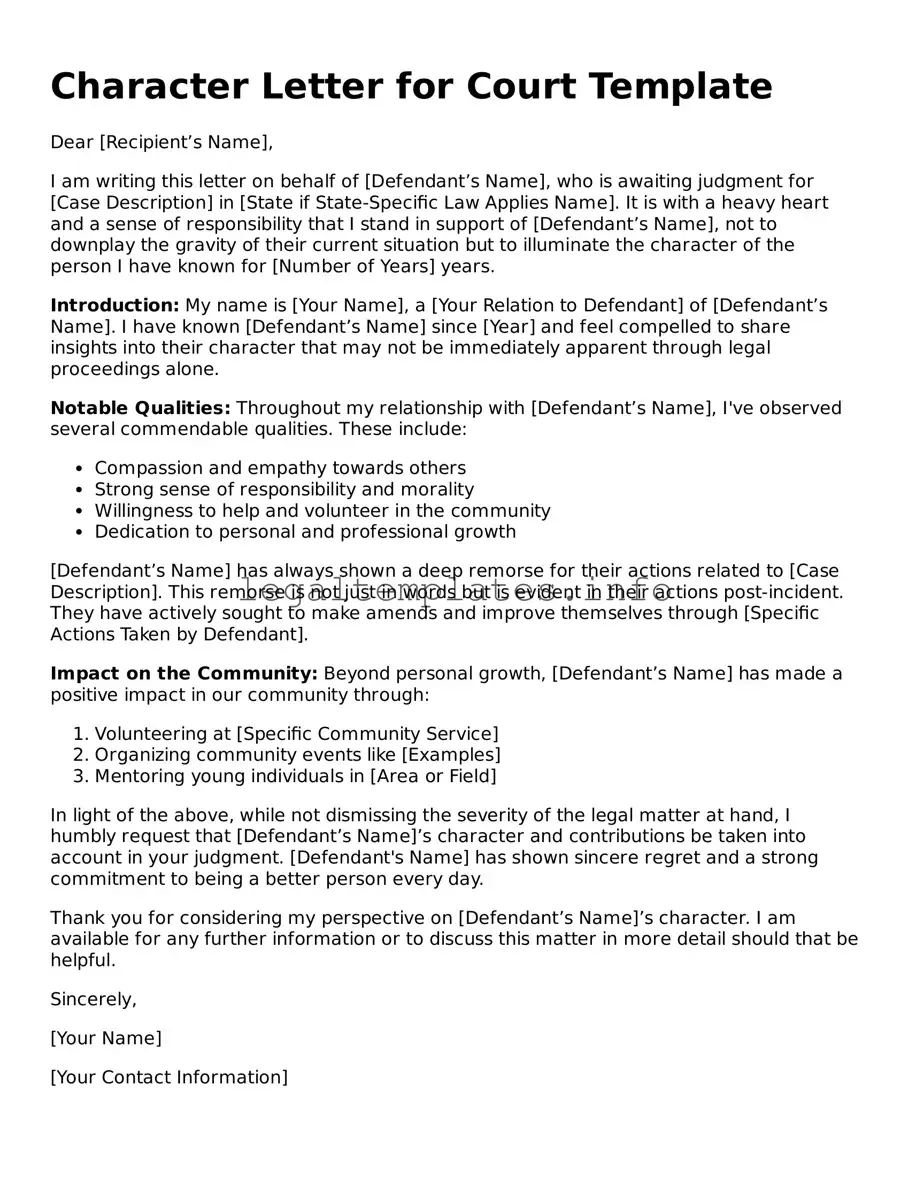What is a Character Letter for Court?
A Character Letter for Court is a document written by someone who knows the defendant personally, aiming to provide the judge with insight into the defendant's moral character and personal qualities. This type of letter is often used in sentencing or other legal proceedings to potentially influence the court's decision in favor of the person on trial.
Who can write a Character Letter for Court?
Typically, anyone who knows the defendant well and can speak positively about their character can write a Character Letter for Court. This includes family members, friends, employers, colleagues, and sometimes, members of the community or religious leaders.
What should be included in a Character Letter for Court?
Effective Character Letters for Court should include the writer's relationship to the defendant, observations of the defendant's positive qualities and contributions to the community, any personal anecdotes that highlight the defendant's character, and, if appropriate, a respectful request for leniency. The letter should be truthful, specific, and concise.
How long should a Character Letter for Court be?
It is best to keep a Character Letter for Court to one page if possible. The goal is to be impactful yet concise, focusing on specific attributes and instances that portray the defendant in a positive light.
Is there a specific format to follow when writing a Character Letter for Court?
Yes, Character Letters for Court should follow a formal letter format. This includes the writer's contact information, the date, a formal greeting, the body of the letter detailing the writer’s relationship with the defendant and the defendant's character, a closing statement, and the writer’s signature.
Can a Character Letter for Court impact the judge's decision?
While judges have discretion in how much weight to give Character Letters for Court, a well-written and compelling letter can indeed impact a judge's decision, particularly in sentencing phases. These letters provide the court with a broader understanding of the defendant's character outside the context of the legal proceedings.
Should the writer use legal terminology in the Character Letter for Court?
No, the writer should not use legal terminology or attempt to discuss legal aspects of the case. The letter's focus should be on demonstrating the defendant's character and personal qualities through everyday language.
Is it necessary to have a lawyer review the Character Letter for Court before submission?
It is not strictly necessary, but it can be beneficial. Having a lawyer review the letter can ensure that it is appropriate and does not unintentionally harm the defendant’s case. The lawyer can also provide guidance on the submission process.
How is a Character Letter for Court submitted?
The submission process can vary, so it is essential to follow the specific instructions given by the legal counsel or court. Generally, the letter is either submitted through the defendant's lawyer or directly to the court, if allowed.

